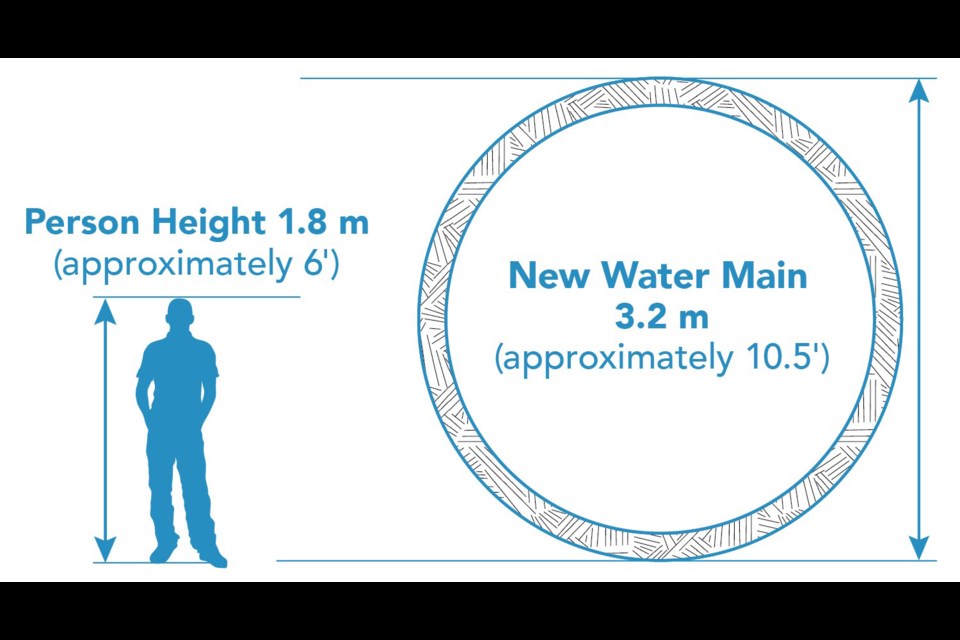A $97-million contract to install part of a massive Metro Vancouver pipe through Coquitlam’s City Centre neighbourhood got the OK from the agency’s water committee yesterday (March 15).
The contract awarded to Michels Canada Company is to install the Coquitlam Main No. 4 pipe from Robson Drive to Guildford Way; the deal is subject to approval by the GVWD board on March 31.
The $97-million bill is $22 million more than the engineer’s estimate “largely due to significant price escalations in the construction industry and a saturated construction market,” according to the committee report.
“The pent-up demand for infrastructure spending coupled with ongoing supply chain issues have impacted material availability and price stability. As well, sky-high energy prices and labour shortages together with rising interest rates have created price escalations.”
As a result, Metro will dip into the project contingency fund to make up the $22-million shortfall.
Michels was the highest-ranked contractor to bid on the project, with the lowest overall cost. Aecon Infrastructure Management came in second, with a price tag of $116 million.
The aim of the pipe project is to meet the demand for regional drinking water by linking the Coquitlam Water Treatment Plant with a new pipe to go into the ground in four major sections:
- Robson to Guildford Section: 2023–2026
- Pipeline Road North Section: 2026–2030
- City Centre Tunnel Section: 2026–2031
- Cape Horn Section: 2024–2030
Construction of the 12-km long pipe, measuring up to 3.5 m in diameter, is set to end in 2030 — a year later than scheduled.
The design of 1.5-km southern section will start later this year before the City of Coquitlam begins to widen Pipeline Road, from David Avenue to Guildford Way, as part of a municipal area upgrade.
Last January, Metro's water committee awarded a $15.7-million US contract for the supply and delivery of the southern section of the steel pipe. The Washington-based Northwest Pipe Company won the bid, and the pipe will be built at the company’s southern California facility.
Currently Coquitlam Lake supplies 33 per cent of the region’s drinking water.
Information about the Coquitlam Main No. 4 project is available via Metro Vancouver's community liaison at 604-432-6200 (Monday to Friday, 8 a.m. to 4:30 p.m.).
CLIMATE CHANGES
Meanwhile, the water committee, which includes Coquitlam Coun. Craig Hodge, heard this week about climate impacts on the region’s water supply areas: Capilano, Seymour and Coquitlam.
The June 2021 heatwave and the 2022 fall drought highlighted the need for environmental monitoring, as well as accurate weather and water supply forecasts, the Metro report reads.
The Coquitlam Glacier — the last in the region’s water supply areas, but not a significant source of drinking water — has shrunk 20 per cent since 2014 and lost an average depth of more than 10 m due to rising air temperatures, longer snow-free seasons and ash deposits from wildfire smoke, such as at Minnekhada Regional Park last October.
“As glaciers get smaller their melt rate tends to increase; however, the Coquitlam Glacier has seen a five-fold increase in melt rates since 2018, which is much greater than normal. This glacier will likely disappear completely within the next 20 to 30 years,” the Metro committee report reads.





